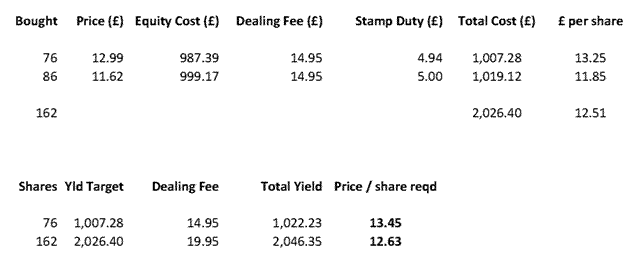The one time when a falling stock market is NOT a good thing is when you want to take money out of the market in the near future – your portfolio can move horrendously against you within a matter of weeks if not days.
There is, however, a time when a falling stock market is a GOOD thing – that’s when you’re actually putting money into the market (as I have been doing over the last couple of years).
Now I’m not saying now is the right time for YOU to invest in the stock market – we all have our own reasons for investing (or not, as the case may be). My investment strategy, time horizons, attitude to investment risk etc will probably be different to almost everyone else’s so the actions I take may not be the actions which you should take!
The stock market performed a fantastic turnaround in 2009, with the FTSE100 rising from 4,434.20 at close of trading on 31st December 2008 to 5,412.9 at close of trading on 31st December 2009 – an increase in the FTSE100 of 22.1% during 2009.
Who knows where it will go next?!
Well, anyway, as part of my broader portfolio, I bought some shares in December in Tullow Oil (TLW.L) which is an oil drilling and exploration company with interests in the African continent as well as other geographical areas. At the time I bought them, their shares stood at £12.99 per share. I had £1,000.00 to invest and therefore was able to purchase 76 shares back in December.
There has been a certain amount of volatility in the stock market recently and today I noticed that their share price had in fact dropped to £11.62 per share – a fall of £1.37 per share or 10.55% compared to what I paid for my shares back in December.
Now many people would be unhappy about this – not me! I saw it as a buying opportunity. I therefore decided to purchase another £1,000 worth this morning.
I am in this for the long run and will possibly hold these shares for in excess of 5-10 years so I took advantage of the recent fall in price to add more shares to my portfolio and benefit from pound cost averaging.
So what does all this mean? Well, I was able today to buy these shares at £1.37 per share less than I paid for them in December. I have drawn up a spreadsheet to demonstrate the benefit to me of this course of action.
I have included the dealing costs and stamp duty (0.5% on purchases) to take full account of the trading situation. You can see from row 1 that the total cost of my purchase of 76 shares in December was £1,007.28 giving a total acquisition cost per share of £13.25. Today I bought 86 shares at £11.63 and row 2 shows the total acquisition cost of £1,019.12 or £11.85 per share. So my purchase today cost me £1.40 per share less than in December.
Now here’s the interesting bit!!!
The second half of the spreadsheet answers the question “at what price per share do I have to sell to get my money back and break-even?”
Row 1 shows that had I not bought those shares today then to recoup the £1,007.28 outlaid in December, together with the £14.95 dealing charge to sell, I would need the Tullow Oil share price to hit £13.45 (last column) – this is the break-even price for my holding as it stood prior to today’s purchase.
Now consider the next row down – because I was able to reduce the average buying cost of my two lots of shares in Tullow down to £12.51 i have “pound cost averaged” down the cost of this holding in my portfolio.
The second row shows that to recover £2,026.40 (total cost of both the purchases in December and today) together with dealing charges of £19.95 (next tier of dealing charges) I would need to sell the shares for a minimum of £12.63 per share.
So in summary, had I only bought the December shares I would need Tullow Oil share price to hit £13.45 to break even.
Now with today’s “cheaper” shares I have reduced this break-even share price down to £12.63 per share – 82 pence per share lower. In effect, each and every penny that the Tullow Oil price rises over and above £12.63 is profit to me!
This therefore gives me scope for larger gains at a later date when I ultimately sell this holding.
If the price drops even further I will consider whether to invest further funds to reduce my break-even price even further.
Warning!
This is not a recommendation to buy shares in Tullow Oil or indeed that share ownership is suitable for YOU! The value of shares and the income from them can fall as well as rise and if the company went bust I could lose all my money. Do not act on this article without first taking suitable advice from a qualified stockbroker or financial adviser. You have been warned!!
